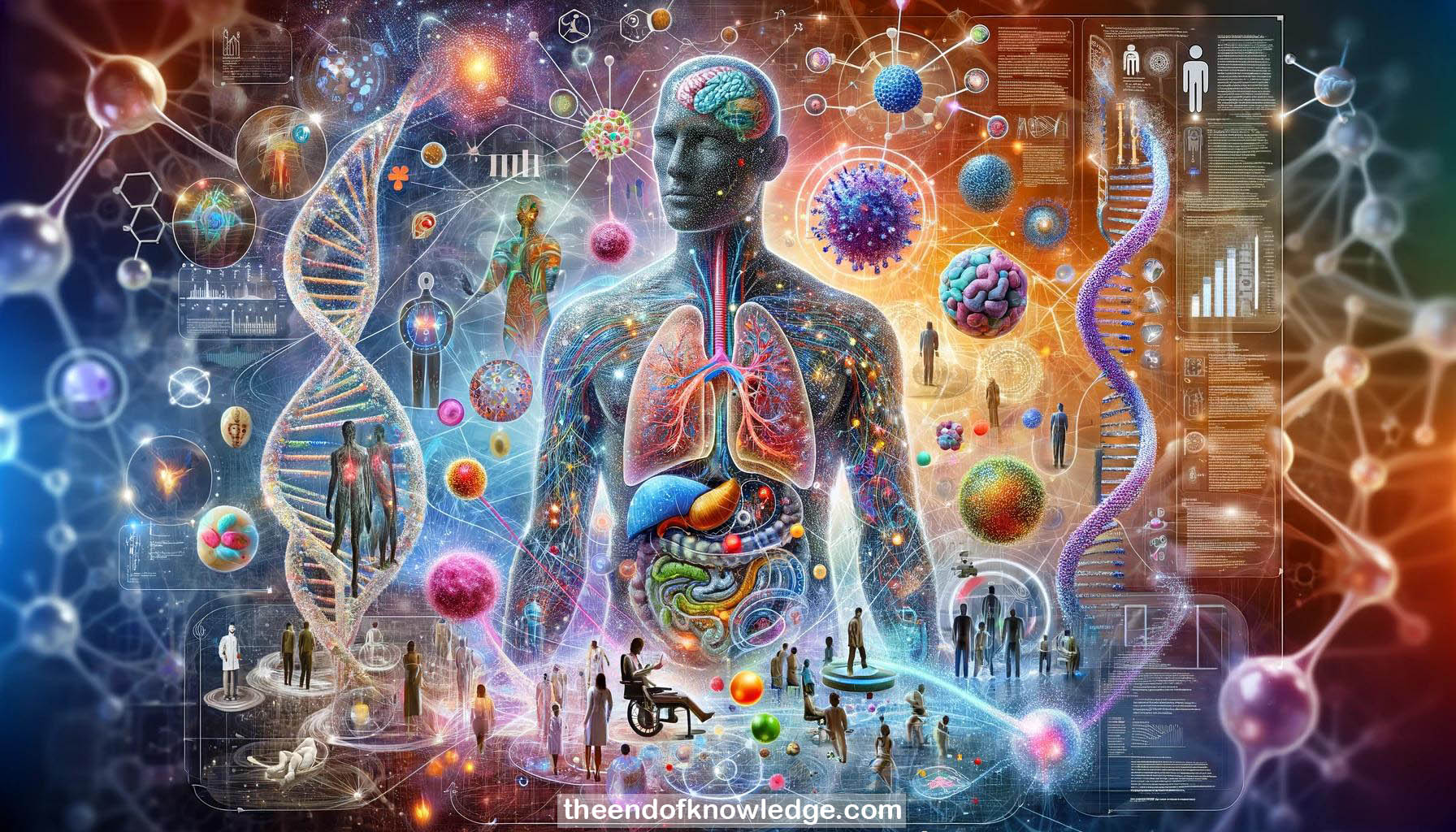 >
>
Concept Graph & Resume using Claude 3 Opus | Chat GPT4o | Llama 3:
Resume:
1.- Human Immunome Project: A global NGO launched to decode the human immune system using AI, aiming to develop new diagnostics, therapies, and vaccines.
2.- Neobiological Revolution: Applying digital age tools to human biology, including neuroscience, genetics, and synthetic biology, to advance medical innovation.
3.- Genomic Advances: Sequencing the human genome 20 years ago led to breakthroughs in preventing monogenetic diseases and addressing genetic mutation-caused diseases.
4.- Immunome's Role: While the genome accounts for 20% of human diseases, the immunome's understanding is crucial for the remaining 80%, involving complex systems.
5.- Global Collaboration: The Human Immunome Project unites academia, industry, governments, and NGOs to collect diverse population data for comprehensive immune system modeling.
6.- Low and Middle-Income Populations: Emphasizes the need to include diverse populations in research to address global health disparities.
7.- Scientific Silos: Calls for breaking down silos within and between scientific fields to foster collaboration and holistic problem-solving.
8.- Complexity Science: Stresses that understanding the immune system requires a complexity science approach rather than simple mapping.
9.- AI and Life Sciences: Highlights the potential of AI in handling biological data and aiding in the advancement of life sciences.
10.- Data Privacy and Security: Ensures that collected data will be de-identified and stored securely to maintain privacy and comply with ethical standards.
11.- Strategic Plan: Involves generating immunological baseline and functional data sets from diverse human populations to create comprehensive AI models.
12.- Research Scope: Targets all ages, ethnicities, socioeconomic classes, sexes, and genders, utilizing standardized probes for data collection.
13.- Organ-Specific Data: Collects multi-omics data from various organs to achieve a holistic understanding of the immune system.
14.- AI Model Development: Develops AI models in two stages, starting with a prototype using existing literature and moving to sponsor-collected data.
15.- Global Data Partnerships: Forms agreements with governments and institutions worldwide to share and regulate data ethically and transparently.
16.- Immunological Baselines: Provides baseline data to various stakeholders, including patients, doctors, drug developers, and country leaders.
17.- Precision Medicine: Aims to deliver personalized medical solutions based on a comprehensive understanding of individual immune responses.
18.- Healthcare Disparities: Works to close health disparities by ensuring diverse representation in research and data collection.
19.- AI Partners: Seeks collaborations with AI partners to build and refine the immune system models.
20.- Quantum Computing: Explores quantum computing partnerships to handle complex data sets and variables.
21.- Ethical Standards: Sets international guidelines for ethical data collection and sharing, emphasizing informed consent.
22.- AI in Medicine: Projects major advancements in medicine driven by AI and comprehensive immune system data.
23.- Global Health Impact: Anticipates significant improvements in global health and healthcare efficiency through collaborative efforts.
24.- Educational Integration: Emphasizes the need to integrate advances in immunology and precision medicine into medical education.
25.- Public Awareness: Advocates for public and professional awareness of new medical tools and technologies to drive demand and implementation.
26.- Tool Utility: Stresses the importance of utility and accessibility of new tools for their integration into medical practice.
27.- Stakeholder Engagement: Involves diverse stakeholders in the development and application of the Human Immunome Project’s findings.
28.- Open Access: Commits to open-source data sharing to ensure equal access for researchers and institutions globally.
29.- Healthcare Policy: Supports healthcare policy development based on comprehensive immune system data for better health outcomes.
30.- Project Vision: Aims to change medicine fundamentally by decoding the human immune system and enabling precise, personalized medical care.
Knowledge Vault built byDavid Vivancos 2024